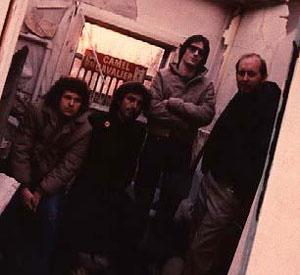
Music
Our Musical Memories: the 1980s New Wave music of Sgt Arms
The Our Musical Memories series of articles is designed to remember and celebrate all the wonderful bands that ... Read more

The Our Musical Memories series of articles is designed to remember and celebrate all the wonderful bands that ... Read more